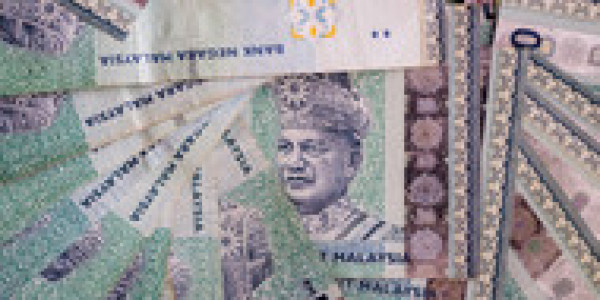Taylor Scott International News
By Lilian Karunungan & Yumi Teso – Sep 20, 2013 Asian currencies rallied this week by the most in a year after the Federal Reserve unexpectedly maintained monetary stimulus that’s led to capital inflows to emerging-market assets. Malaysia’s ringgit and Thailand’s baht led the advance after Fed Chairman Ben S. Bernanke said Sept. 18 more evidence of a recovery in the world’s largest economy is needed before the central bank starts paring its $85 billion a month of bond purchases. Global funds bought $494 million more stocks than they sold in the first four days of the week in Indonesia, the Philippines and Thailand. Enlarge image The Malaysian currency is headed for its best weekly gain since the 1998 Asian financial crisis, helping the FTSE Bursa Malaysia KLCI Index of shares to climb 1.4 percent this week. Photographer: Sanjit Das/Bloomberg “Investors reversed positions built up across the board on speculation about the stimulus reduction,” said Tohru Nishihama, an economist covering emerging markets at Dai-ichi Life Research Institute Inc. in Tokyo. “But the Fed will eventually trim stimulus, and investors will become more selective. The long-term trend of gradual dollar appreciation may remain intact.” The Bloomberg-JPMorgan Asia Dollar Index , which tracks the region’s 10 most-active currencies excluding the yen, climbed 0.8 percent during the five days to 116.14 as of 5:20 p.m. in Singapore, the most since the period ended Sept. 14, 2012. The ringgit strengthened 4 percent this week to 3.1650 per dollar in Kuala Lumpur , according to data compiled by Bloomberg. The Thai baht appreciated 2.9 percent to 30.96 and the Indonesian rupiah rallied 0.5 percent to 11,350. Bernanke Concern The Federal Open Market Committee is concerned that the rapid tightening of financial conditions in recent months could damp growth, Bernanke said at a press conference in Washington on Sept. 18. Economists surveyed by Bloomberg were predicting a cut of $5 billion in the Fed’s monthly bond buying. The Malaysian currency posted its biggest weekly gain since the 1998 Asian financial crisis, helping the FTSE Bursa Malaysia KLCI Index of shares climb 1.8 percent. The U.S. is Malaysia’s fourth-largest overseas market. Shipments rose in July after a five-month contraction. “We are building up our portfolio to come back to a long position on emerging currencies versus the dollar,” said Philippe Jauer, chief investment officer for global fixed income and currencies in Singapore at Amundi, which oversees about $1 trillion, said in an e-mail interview yesterday. “The Philippines, Malaysia and Thailand are the first countries any investor should come back to because the economic fundamentals are much better than in India and Indonesia.” RBI Policy The Reserve Bank of India unexpectedly raised its benchmark repurchase rate by a quarter percentage point to 7.5 percent today, the first increase since 2011. Governor Raghuram Rajan , who took office two weeks ago, is seeking to rein in inflation that’s hurting the poor and dimming economic prospects. The rupee dropped 0.6 percent to 62.1387 in Mumbai, trimming the week’s gain to 2.2 percent. It reached 61.6450 yesterday, the strongest level since Aug. 16, as markets reacted to the Fed decision. The S&P BSE Sensex Index of shares fell 2 percent, after climbing 4.6 percent in the previous four days. The rupee and Indonesia’s rupiah are the worst-performing Asian currencies this year after the yen, with losses of 12 percent and 15 percent, respectively, as investors fled nations with worsening current-account deficits. “Asian currencies’ strength this week has a lot to do with the Fed’s decision not to taper quantitative easing,” said Nizam Idris , the head of fixed income and currency strategy at Macquarie Bank Ltd. in Singapore. “It gives countries with worsening current accounts more time to get their houses in order.” Elsewhere in Asia, the Philippine peso rose 1.9 percent this week to 43.037 per dollar. Vietnam’s dong traded at 21,115, unchanged from the end of last week. South Korea’s markets are shut for three days from Sept. 18 for public holidays, while China and Taiwan are closed for two days from Sept. 19. Hong Kong also has a public holiday today. To contact the reporters on this story: Lilian Karunungan in Singapore at lkarunungan@bloomberg.net ; Yumi Teso in Bangkok at yteso1@bloomberg.net To contact the editor responsible for this story: James Regan at jregan19@bloomberg.net Taylor Scott International
Taylor Scott International, Taylor Scott








